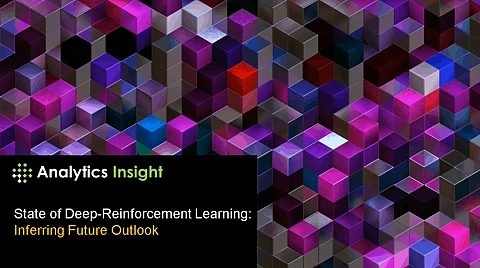

Today machines can teach themselves based upon the results of their own actions. This advancement in Artificial Intelligence seems like a promising technology through which we can explore more innovative potentials of AI. The process is termed as deep reinforcement learning.
Deep reinforcement learning, as defined by Bernard Marr, a well-known AI Influencer, is a category of machine learning and artificial intelligence where intelligent machines can learn from their actions similar to the way humans learn from experience. Inherent in this type of machine learning is that an agent is rewarded or penalized based on their actions. Actions that get them to the target outcome are rewarded (reinforced).
Through a series of trial and error, a machine keeps learning, making this technology ideal for dynamic environments that keep changing. Although reinforcement learning has been around for decades, it was much more recently combined with deep learning, which yielded phenomenal results. The "deep" portion of reinforcement learning refers to a multiple (deep) layers of artificial neural networks that replicate the structure of a human brain.
Deep learning requires large amounts of training data and significant computing power. Over the last few years, the volumes of data have exploded while the costs for computing power have dramatically reduced, which has enabled the explosion of deep learning applications.
The advents of deep reinforcement learning gathered attention when DeepMind's AlphaGo defeated Go grandmaster.
Apart from games, AI toolkits including OpenAI Gym, DeepMind Lab, and Psychlab provide a training environment to project large-scale innovation for deep reinforcement learning.
Other practical use cases include intelligent robots that are being used in most of the manufacturing plants or warehouses to sort out millions of products and deliver them to the right people. Here, when a robot picks a device to put in a container, deep reinforcement learning helps it gain knowledge based on whether it succeeded or failed. It uses this knowledge to perform more efficiently in the future.
The technology is advancing with leaps and bounds and determined to progress to do great things in the near future. According, to the McKinsey report, AI techniques including deep learning and reinforcement learning have the potential to create between US$3.5 trillion and US$5.8 trillion in value annually across nine business functions in 19 industries.
Experts believe that deep reinforcement learning is at the cutting-edge right now and it has finally reached a to be applied in real-world applications. They also believe that moving it will have a great impact on AI advancement and can eventually researchers closer to Artificial General Intelligence (AGI).
Sudharsan Ravichandiran, a data scientist at param. ai, and the author of the book, Hands-On Reinforcement Learning with Python, in an interview with PacktHub said, reinforcement learning adoption among the community has increased exponentially because of the augmentation of reinforcement learning with state of the art deep learning algorithms.
According to him, it is extensively used in the Gaming industry, robotics, Inventory management, and Finance and one can further see more and more research papers and applications leading to full-fledged self-learning agents.
Sudharsan also noted that deep meta reinforcement learning will be the future of artificial intelligence where we will implement artificial general intelligence (AGI) to build a single model to master a wide variety of tasks. Thus each model will be capable to perform a wide range of complex tasks.
Join our WhatsApp Channel to get the latest news, exclusives and videos on WhatsApp
_____________
Disclaimer: Analytics Insight does not provide financial advice or guidance. Also note that the cryptocurrencies mentioned/listed on the website could potentially be scams, i.e. designed to induce you to invest financial resources that may be lost forever and not be recoverable once investments are made. You are responsible for conducting your own research (DYOR) before making any investments. Read more here.
